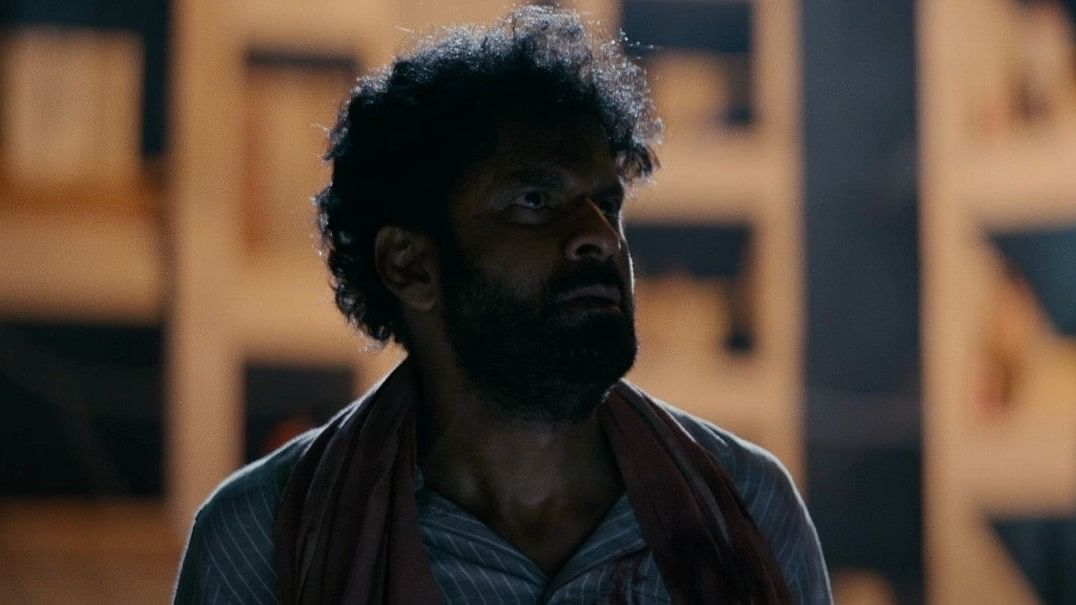
Devashish Makhija’s ‘Joram’ is brutal. Not in moments when its characters are met with violent deaths, but in silently observed frames that carry a subdued voice within them. A voice that has been shut away; of tongues that have been latched out of existence. It is in these carefully composed moments that a picture of brutality begins to take shape.
In a poignant scene, Dasra (played by Manoj Bajpayee) is sitting with his 3-month-old daughter, Joram, just ahead of a huge sign that has a certain section of the Indian Constitution painted on it in a green background. It is a striking moment that speaks volumes and, at the same time, leaves you with many questions. Makhija’s camera makes sure that the images he creates don’t bulge out from the screen but carry their heaviness for seconds and leave an undeniable mark in your mind.
That is true even of the staggering performance by Bajpayee, who just blends in completely with the visuals, never giving away his cover with an extra note in the performance. He does not try to make an effort to get somewhere. His eyes don’t convey anything; they just are the way they are. One look at them is enough to know him and his trauma. Bajpayee navigates this trauma felt by the tribal man with restraint.
‘Joram’ is a film that leaves its stomped footprints behind as it takes you to murky lands. Makhija is sharp in his observations and parched in his poetry. Moving like a thriller in a tense atmosphere, he leaves little room for you to breathe. The meticulous sound design creates a perfect mix with the visuals that linger on some moments to create a whole. That way, the film is a seamless union of form and story, making for a rich, devastating, and provoking experience.